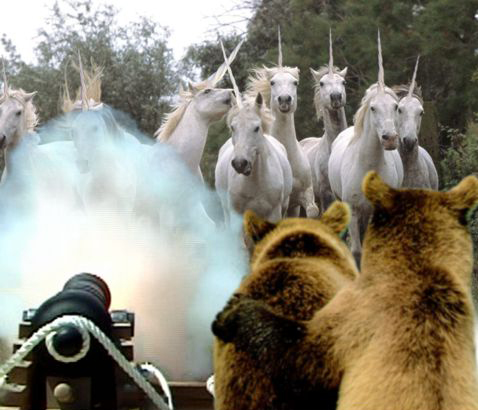
No, this isn’t a post about relationships: I’m talking about bearish investors and the growth of unicorn companies. A unicorn is a privately held startup valued at over $1 billion, and they got the name because they’re just that rare.
Or they used to be, anyway.
CB Insights has a complete list of these unicorns in 2018, and the number is up to 261 companies worth a combined total of nearly $850 billion. What does “worth” mean in this context? Well, it means that this is the price that investors are paying for their ownership shares. If you want to own 10% of Uber, it’s going to cost you $6.6 billion.
There’s just one major problem: Uber doesn’t make a profit and there’s no sign that they will any time soon.
So is the company really worth $66 billion? Sure, just so long as new investors continue to pay in at that rate. And there will certainly need to be new investors, because Uber is currently blowing through close to a billion dollars in quarterly losses. Q2’s loss is actually a bit smaller than Q1’s – and mostly because the number of people using the service declined. That’s right: Uber loses more money when it has more customers. Filling that gap will require more and more investors to jump in until those self-driving cars are ready.
Unless, of course, the new investors are too bearish to put their money down.
MoviePass isn’t technically a unicorn since a) the parent company is publicly traded and b) it was never valued at over a billion (and it certainly isn’t, now). But it does offer a cautionary tale because it is so similar to other app-based disruptive services that dominate the unicorn listing. Just like Uber, Lyft, etc… the business model relies on using technology to provide customers with more choices. They’ve just never figured out how to make the price of the technology competitive to what movie theaters and taxi cabs are already charging.
How long can the song go on? Well, exactly as long as the next investor is willing to pay more for a share of a losing company than the investor before them did. This is partially enabled by cheap credit available at low interest rates, and it’s also enabled by the fact that rich people have amassed an absurd amount of cash that they’re looking to put in to profitable investments. Unfortunately, the amount of money available for investing may often exceed the number of available and sound investments.
As fears of a trade war rise, interest rates increase, and analysts start to fret over high P/E valuations, the market bears are starting to wake from their long hibernation. They’re hungry, and I hear unicorns taste delicious.

Leave a Reply